Microsoft collaborates with Leading Academic Medical Systems to Advance AI in Medical Imaging
|
By MedImaging International staff writers Posted on 25 Jul 2024 |
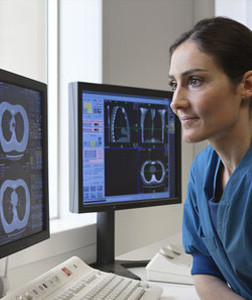
Medical imaging is a critical component of healthcare, with health systems spending roughly USD 65 billion annually on imaging alone, and about 80% of all hospital and health system visits involve at least one imaging exam related to over 23,000 conditions. Due to ongoing challenges such as physician burnout and staffing shortages, healthcare organizations are increasingly turning to generative artificial intelligence (AI) to alleviate workloads, enhance workflow efficiencies, and improve the accuracy and consistency of medical image analysis across care delivery, clinical trials recruitment, and drug discovery. Additionally, generative AI in radiology could improve patient experiences by reducing wait times for imaging results, thus broadening access to care and enhancing the quality of care. Now, new collaborations are set to boost the development of medical imaging copilot applications that will enrich radiologists' experiences and lead to better patient outcomes.
Microsoft Corp. (Redmond, WA, USA) has entered into collaborations with leading academic medical systems Mass General Brigham (Boston, MA, USA) and the University of Wisconsin School of Medicine and Public Health (Madison, WI, USA) along with its partnering health system, UW Health, (Madison, WI, USA). These partnerships aim to tackle major radiology challenges and promote the advancement of AI in medical imaging to enhance clinician efficiency and support superior health outcomes. These collaborations will focus on the development of high-performing multimodal AI foundation models, leveraging the secure Microsoft Azure AI platform and building upon the Nuance (a Microsoft company) suite of radiology applications to offer a variety of high-value medical imaging copilot applications.
By utilizing appropriate multimodal data-enriched medical imaging foundation models, Microsoft and its partners plan to investigate how advanced algorithms and applications can assist radiologists and other clinicians in interpreting medical images, aiding with report generation, disease classification, and structured data analysis. Microsoft has a long-standing commitment to exploring high-performing advanced foundation models and copilot experiences to enhance global capabilities. Furthermore, Microsoft has been at the forefront in medical imaging research and biomedical natural language processing, collaborating with medical experts to make AI more accessible and empower researchers, hospitals, life sciences organizations, and healthcare providers to develop innovative models and systems.
Through these collaborative efforts, researchers and clinicians at Mass General Brigham, UW School of Medicine and Public Health, and UW Health will work alongside Microsoft to push the boundaries of state-of-the-art multimodal foundation models. They will focus on developing, testing, and validating cutting-edge technologies, integrating real-world applications into clinical workflows, including through Nuance’s PowerScribe radiology reporting platform—widely used by U.S. radiologists—and the Nuance Precision Imaging Network, which facilitates the automated and scalable use of third-party medical imaging AI models across various modalities and specialties.
“Generative AI has transformative potential to overcome traditional barriers in AI product development and to accelerate the impact of these technologies on clinical care. As healthcare leaders, we need to carefully and responsibly develop and evaluate such tools to ensure high-quality care is in no way compromised,” said Keith J. Dreyer, D.O., Ph.D., chief data science officer and chief imaging officer at Mass General Brigham and leader of the Mass General Brigham AI business. “Foundation models fine-tuned on Mass General Brigham’s vast multimodal longitudinal data assets can enable a shorter development cycle of AI/ML-based software as a medical device and other clinical applications, for example, to automate the segmentation of organs and abnormalities in medical imaging and increase radiologists’ efficiency and consistency.”
“Our institutions have a reputation for embracing technical innovations as opportunities to lead the transformation of our field with new scientific discovery and improvement in clinical care,” said Scott Reeder, M.D., Ph.D., chair of the Department of Radiology, University of Wisconsin School of Medicine and Public Health, and radiologist at UW Health. “We are excited to collaborate with Microsoft on the development, validation and thoughtful clinical investigation of generative AI in the medical imaging space. Our focus is to bridge the gap within medical imaging from innovation to patient care in ways that improve outcomes and make innovative care more accessible.”
“We are proud to announce our expanded collaborations with leading institutions like Mass General Brigham and UW. Along with other industry partners, our joint efforts aim to leverage the power of imaging foundation models to improve experiences and workflow efficiency across the radiology ecosystem in a way that is reliable, transparent and secure,” said Peter Durlach, corporate vice president, Microsoft Health and Life Sciences. “Together, we are not only advancing medical imaging, but also helping deliver more accessible and better-quality patient care in a very resource-constrained environment.”
Latest Industry News News
- GE HealthCare and NVIDIA Collaboration to Reimagine Diagnostic Imaging
- Patient-Specific 3D-Printed Phantoms Transform CT Imaging
- Siemens and Sectra Collaborate on Enhancing Radiology Workflows
- Bracco Diagnostics and ColoWatch Partner to Expand Availability CRC Screening Tests Using Virtual Colonoscopy
- Mindray Partners with TeleRay to Streamline Ultrasound Delivery
- Philips and Medtronic Partner on Stroke Care
- Siemens and Medtronic Enter into Global Partnership for Advancing Spine Care Imaging Technologies
- RSNA 2024 Technical Exhibits to Showcase Latest Advances in Radiology
- Bracco Collaborates with Arrayus on Microbubble-Assisted Focused Ultrasound Therapy for Pancreatic Cancer
- Innovative Collaboration to Enhance Ischemic Stroke Detection and Elevate Standards in Diagnostic Imaging
- RSNA 2024 Registration Opens
- GE HealthCare Acquires Intelligent Ultrasound Group’s Clinical Artificial Intelligence Business
- Bayer and Rad AI Collaborate on Expanding Use of Cutting Edge AI Radiology Operational Solutions
- Polish Med-Tech Company BrainScan to Expand Extensively into Foreign Markets
- Hologic Acquires UK-Based Breast Surgical Guidance Company Endomagnetics Ltd.
- Bayer and Google Partner on New AI Product for Radiologists
Channels
Radiography
view channel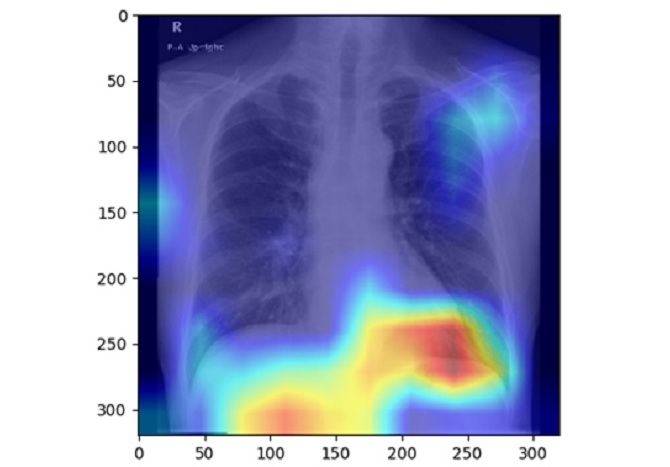
AI Detects Fatty Liver Disease from Chest X-Rays
Fatty liver disease, which results from excess fat accumulation in the liver, is believed to impact approximately one in four individuals globally. If not addressed in time, it can progress to severe conditions... Read more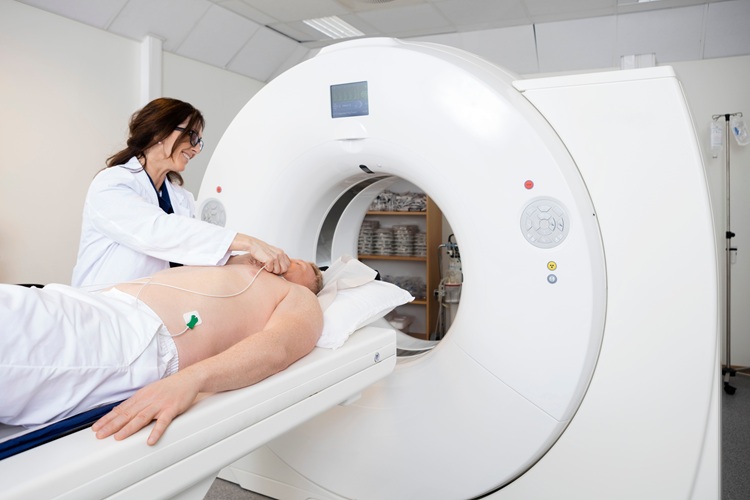
AI Detects Hidden Heart Disease in Existing CT Chest Scans
Coronary artery calcium (CAC) is a major indicator of cardiovascular risk, but its assessment typically requires a specialized “gated” CT scan that synchronizes with the heartbeat. In contrast, most chest... Read moreMRI
view channel
New MRI Technique Reveals Hidden Heart Issues
Traditional exercise stress tests conducted within an MRI machine require patients to lie flat, a position that artificially improves heart function by increasing stroke volume due to gravity-driven blood... Read more
Shorter MRI Exam Effectively Detects Cancer in Dense Breasts
Women with extremely dense breasts face a higher risk of missed breast cancer diagnoses, as dense glandular and fibrous tissue can obscure tumors on mammograms. While breast MRI is recommended for supplemental... Read moreUltrasound
view channel
Wireless Chronic Pain Management Device to Reduce Need for Painkillers and Surgery
Chronic pain affects millions of people globally, often leading to long-term disability and dependence on opioid medications, which carry significant risks of side effects and addiction.... Read more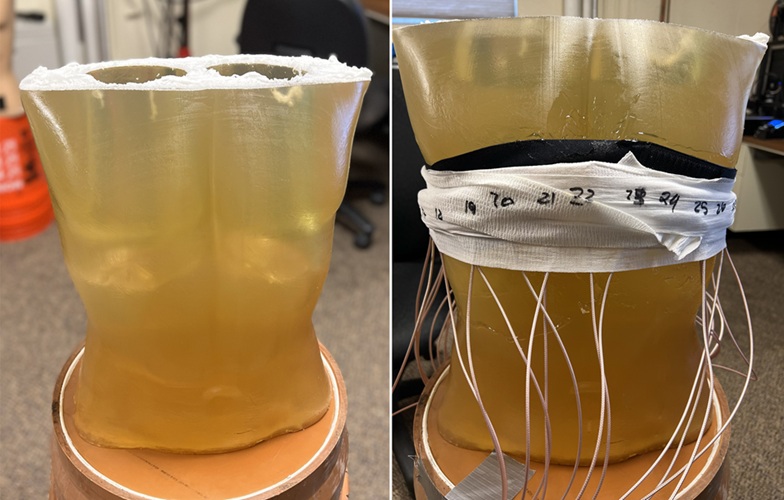
New Medical Ultrasound Imaging Technique Enables ICU Bedside Monitoring
Ultrasound computed tomography (USCT) presents a safer alternative to imaging techniques like X-ray computed tomography (commonly known as CT or “CAT” scans) because it does not produce ionizing radiation.... Read moreNuclear Medicine
view channel
Novel Bacteria-Specific PET Imaging Approach Detects Hard-To-Diagnose Lung Infections
Mycobacteroides abscessus is a rapidly growing mycobacteria that primarily affects immunocompromised patients and those with underlying lung diseases, such as cystic fibrosis or chronic obstructive pulmonary... Read more
New Imaging Approach Could Reduce Need for Biopsies to Monitor Prostate Cancer
Prostate cancer is the second leading cause of cancer-related death among men in the United States. However, the majority of older men diagnosed with prostate cancer have slow-growing, low-risk forms of... Read moreGeneral/Advanced Imaging
view channel
CT Colonography Beats Stool DNA Testing for Colon Cancer Screening
As colorectal cancer remains the second leading cause of cancer-related deaths worldwide, early detection through screening is vital to reduce advanced-stage treatments and associated costs.... Read more
First-Of-Its-Kind Wearable Device Offers Revolutionary Alternative to CT Scans
Currently, patients with conditions such as heart failure, pneumonia, or respiratory distress often require multiple imaging procedures that are intermittent, disruptive, and involve high levels of radiation.... Read more
AI-Based CT Scan Analysis Predicts Early-Stage Kidney Damage Due to Cancer Treatments
Radioligand therapy, a form of targeted nuclear medicine, has recently gained attention for its potential in treating specific types of tumors. However, one of the potential side effects of this therapy... Read moreImaging IT
view channel
New Google Cloud Medical Imaging Suite Makes Imaging Healthcare Data More Accessible
Medical imaging is a critical tool used to diagnose patients, and there are billions of medical images scanned globally each year. Imaging data accounts for about 90% of all healthcare data1 and, until... Read more












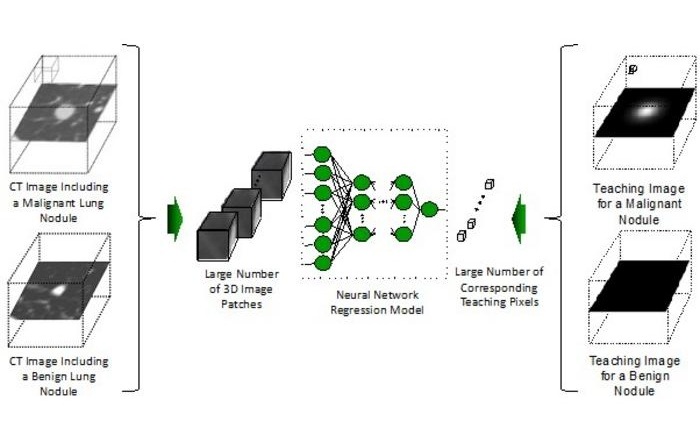
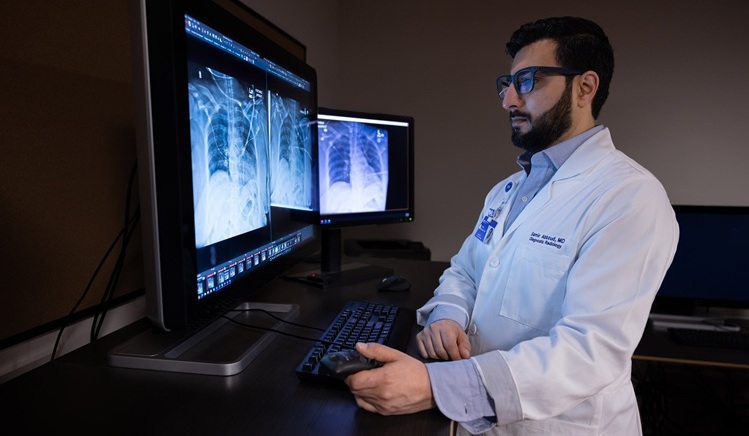



.jpeg)




